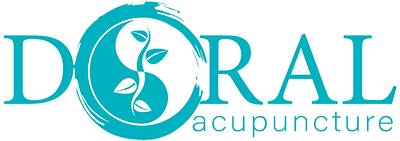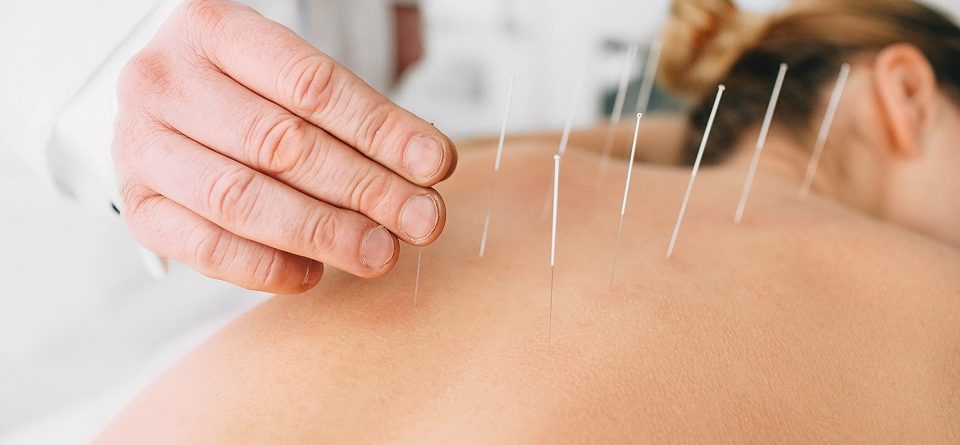Acupuncture is becoming a complementary treatment in addiction recovery programs. Auricular or ear acupuncture is a popular form of this treatment that involves shallow insertion of a thin needle at various points on the skin of the external ear to help ease withdrawal symptoms and reduce cravings.
Acupuncture, an ancient practice that involves inserting needles into pressure points on your body, is becoming a popular alternative treatment for anxiety. There’s some scientific evidence that acupuncture helps with certain symptoms of anxiety.
If you or your child has asthma, you may be wondering if acupuncture is useful for improving asthma severity and asthma symptoms. It may seem especially appealing to you because unlike medication, acupuncture has few known side effects, right? Let’s take a look.
Research has found that the needling of three key Back Shu acupuncture points can relieve coughing even in chronic bronchitis sufferers. A variety of herbal supplements can enhance and reinforce your acupuncture sessions.
Acupuncture is an effective treatment modality for patients with carpal tunnel syndrome. Independent investigations confirm that acupuncture is more effective than usual care, including anti-inflammatory medications. Acupuncture successfully alleviates pain, inflammation, numbness, and restores motor dexterity.
Some studies show that acupuncture could reduce both mental and physical fatigue and depression in people who have ME/CFS.
Acupuncture may be an effective therapy for ulcerative colitis because it activates or enhances the body’s natural painkillers. This helps your body regulate inflammation, decreases disease activity, and lessens pain associated with UC.
In the event that you do come down with a cold or flu, acupuncture can be helpful in relieving symptoms like chills, fever, headaches, body aches, runny nose, congestion, sore throat, and cough. One or two acupuncture treatments and a course of Chinese herbs can be enough to speed up recovery.
Acupuncture has been reported to be effective for treating chronic constipation. In the current authors’ previous clinical experience, occasional bowel movements (BMs) or flatus were noted in patients with chronic DOC who received acupuncture treatment during and after the treatment.
Acupuncture has also been shown to produce short-term analgesia. Acupuncture may help relieve dental pain by: Stimulating the nerves located in muscles and other tissues, which leads to release of endorphins and other neurohumoral factors (e.g., neuropeptide Y, serotonin)
Acupuncture and massage therapy have been shown to provide effective forms of stress relief. This can help improve emotional and mental well-being and ease symptoms associated with specific mental health disorders, such as anxiety and depression.
Most acupuncturists can solve it and do an anti-headache treatment after,” Blakeway says. 4.GI Issues: It’s not uncommon to experience a cleanse-like release of the gastrointestinal tract, or in rare cases, diarrhea.
Pilot studies have shown that acupuncture is effective in a wide range of gastrointestinal disorders including nausea and vomiting, functional disorders (irritable bowel syndrome, constipation, and diarrhoea), peptic ulcer disease, Crohn’s disease, postoperative ileus, and even gall stone disease.
Acupuncture has been used for relief of acute illness, such as pain, dizziness and vertigo in traditional Chinese medicine (TCM) over a thousand years. [7, 8] However, there has been relatively few research studies revealed acupuncture stimulation may induce an immediate effect to treat dizziness and vertigo.
Therapeutic principles In general, dysentery of heat type is treated by heat-clearing therapy and dysentery of cold type by warming therapy. An acute case with sthenia syndrome is treated by purging therapy, while a chronic case with asthenia syndrome by tonifying therapy. Accordingly, a combination of the therapies should be adopted when the case presents a complication of the syndromes. In short, the therapy of removing evil and that of supporting healthy qi ought to be applied flexibly on the basis of syndrome differentiation.
Acupuncture calms your nervous system. If you walk in feeling distressed, upset or overwhelmed receiving acupuncture will switch off your fight or flight response. One of the ways your body can detox after acupuncture is crying.
In addition to severe or chronic eye conditions, acupuncture can boost overall visual acuity, reduce sensitivity to light, reduce or eliminate eye floaters, blurred vision, and dry eyes, decrease excessive tearing, and heal reddened, swollen, and/or painful eyes.
In the case of fatigue, acupuncture might be used to calm yang energy and stimulate yin energy. Acupuncture is said to be effective because it directly affects qi energy and therefore works the most rapidly.
A recent study in the Journal of the American Medical Association (JAMA) found that acupuncture only caused a negligible (around 1 percent) increase in pregnancy outcomes, but other research has shown that acupuncture in conjunction with other fertility treatments increases success rates by 50 percent.
Acupuncture appears to modestly reduce many types of chronic pain, so it’s not surprising that many people with fibromyalgia are interested in trying it. While the studies on the effectiveness of acupuncture for fibromyalgia symptoms are somewhat mixed, most suggest that it may have a beneficial role.
Periodontal diseases continue to be most commonly occurring oral diseases in modern times. Many therapeutic modalities have been tried and tested to relieve these problems. The conventional therapy—scaling and root planing (SRP)—stands out to be the most used mode of treatment, and other treatments remain applicable as adjuncts to SRP, including acupuncture, acupressure, and aromatherapy.
Acupuncture may help reduce the frequency of headaches and migraines, at least in the short-term, and is safe and well tolerated. Many people don’t respond well to drugs prescribed to prevent headaches or migraines, so acupuncture is a good alternative.
The rapid effectiveness of acupuncture also suggests that it is a cost-effective therapy for hiccups. Another previous study reported that acupuncture may provide long-term relief from hiccups through changes in neuronal gene expression that result in neuronal input modulation.
A research team found acupuncture did improve symptoms of stress incontinence — an involuntarily loss of urine, such as when a woman sneezes or coughs. But in a separate study, another team of researchers determined that acupuncture did not help women who were infertile because of polycystic ovary syndrome (PCOS).
Acupuncture May Be Effective at Reducing Indigestion Symptoms. Researchers in China say acupuncture can help people who have a common form of recurring indigestion. They report that study participants with postprandial distress syndrome (PDS) saw relief from symptoms after a 4-week course of acupuncture.
Acupuncture is a popular alternative therapy for IBS and other conditions. It’s proven effective for treating chronic pain, according to researchers at the National Institutes of Health (NIH).

